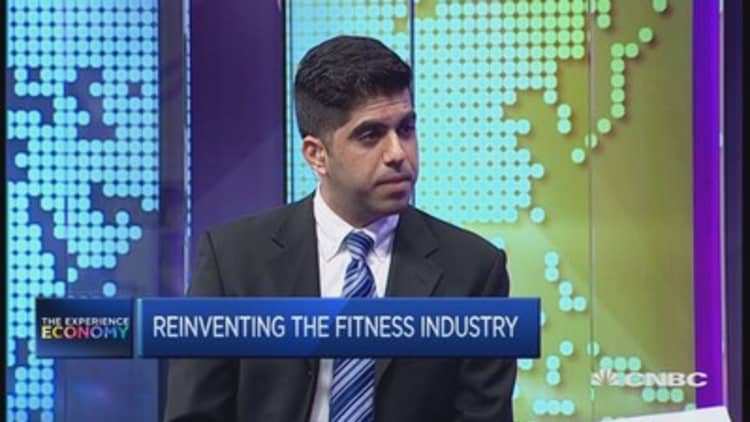
Forget the days of grabbing an old t-shirt and moseying on over to the local gym.
Today's consumers are demanding more dynamic answers to their fitness cravings.
GuavaPass, a startup launched just last year, allows users to book classes at boutique studios, usually reserved for members only. Buoyed by strong demand in Asia and the Middle East, it has already set up flags in ten cities.
"People are looking for a change," Rhyce Lein, Singapore's manager for GuavaPass told CNBC. "Gone are the days of them just going to a gym and lifting weights. They want to discover different types of workouts."
The business model creates a mutually beneficial scenario for both guests and business owners alike.

Anabel Chew, WeBarre co-founder, just opened her second studio in Singapore which offers high-intensity interval training. In an average class, about half of the students in her classes are members of GuavaPass, which allows them to visit her studio up to three times per month.
GuavaPass pays her for each slot, so they don't go unused, while also generating awareness for her studio.
"When we first started out, nobody knew what Barre was," she told CNBC. "It was really important for somebody like GuavaPass to come in and bring in clients who wanted to try Barree but not sure if they wanted to commit to a membership yet.
GuavaPass offerings are wide and include everything from yoga to aqua spin.
The upstart announced its raised $5 million in Series A funding this year, but the space is crowded. It shuttered its operations in Australia citing increased competition, likely from apps including, ClassPass, a U.S.-based rival which has raised more than $80 million, including from Google Ventures, and also operates in the U.K. and Australia.
Meanwhile, Passport Asia, which had a similar business model in Singapore, merged with another fitness start-up.


